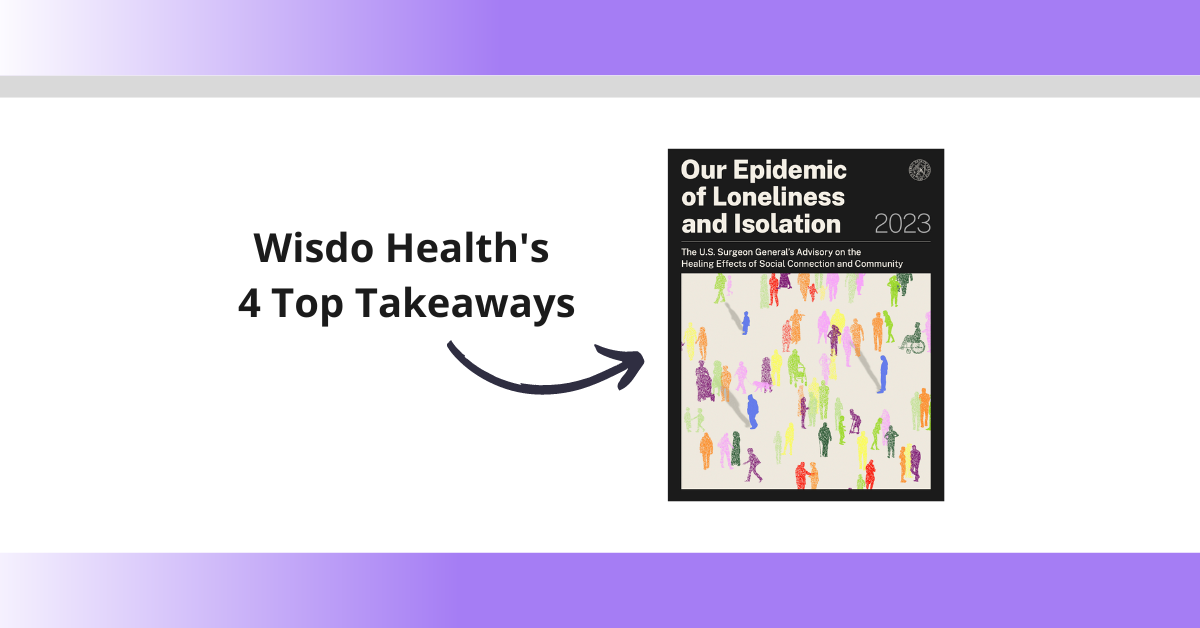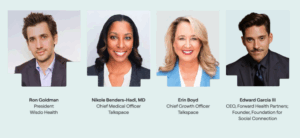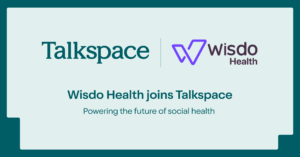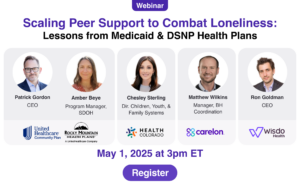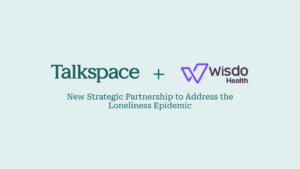“Approximately one-in-two adults in America report experiencing loneliness,” writes the US Surgeon General Dr. Vivek Murthy in his first-ever Advisory on the Healing Effects of Social Connection and Community.
This statistic is even more sobering when considering the devastating effects of loneliness on mental and physical health, as well as on engagement and medical costs.
To illustrate the state of loneliness and the importance of implementing social health programs in health plans and employee benefits packages, here are the top four takeaways from Dr. Vivek Murthy’s advisory on the loneliness epidemic.
1. Loneliness is spreading in America
Although life has slowly come back to normal post-pandemic, Americans are more emotionally isolated than ever. We’re interacting less, developing fewer close relationships, and experiencing increasing distrust.
Dr. Murthy cites a two-decades-long study on objective time spent alone, where Americans spent 285 minutes/day without social interaction in 2003, and 333 minutes/day in 2020. This shows a 24-hour increase in time spent alone per month.
Regarding the quality of relationships, 20% more Americans today claim to have just three or fewer close friends than in 1990.
Trust has also decreased, from approximately 45% of Americans in 1972 to about 30% in 2016.
2. Loneliness is contributing to the mental health crisis
Dr. Murthy then cited the relationship of loneliness with depression, anxiety, and suicidal ideation.
Those who experience loneliness are twice as likely to develop depression than those who self-report as having social wellness. This is particularly so for older adults who cope with social isolation in addition to loneliness.
Loneliness has also been linked to 50% greater rates of suicidality as well as a higher likelihood of self-harm and resulting hospitalizations.
3. Loneliness negatively impacts physical health
Dr. Murthy writes “Research establishes that the lack of social connection is an independent risk factor for deaths from all causes, including deaths caused by diseases.”
The troubling findings on the link between heart disease and loneliness include a greater risk of heart disease by 29%, stroke by 32%, ER visits by 57%, and hospital readmissions by 55%.
On the other hand, strong social connection has shown positive results on hypertension, with a 36% lower risk of the condition.
Loneliness has also been shown to increase risks of developing Type II Diabetes, poorer disease management and health outcomes while coping with the disease, as well as impaired immune systems in the face of infectious diseases.
4. There is a plan to address loneliness, and we can all take part
At the end of his advisory, Dr. Murthy lists “the 6 pillars to advance social connection.”
One of those pillars, “Mobilize the health sector,” discusses the importance of identifying poor social health early on, and referring individuals to resources that can help.
Another pillar calls for mitigating the harmful effects of technology on social health: “We should support the development of pro-connection technology to promote healthy social connection, create safe environments for discourse, and safeguard the well-being of users.”
Developing further research and raising awareness of the importance of social connection is yet another pillar that is geared toward policymakers, innovators, and healthcare leaders.
The advisory then details what every sector of our society can do to positively impact the state of social wellness in America today.
Conclusion
The advisory makes irrefutable claims about the devastating impacts of loneliness on health outcomes, medical costs, and engagement. This is a problem that began before COVID and will continue long after if we do not take action.
That being said, Dr. Murthy’s advisory also points out the tremendous opportunity we have to repair the social fabric of our society through policy, innovation, and simple acts of kindness each day.
Leaders in health care and corporations play a particularly important role in ensuring that they provide social health platforms to their members.
Wisdo Health’s peer support and social health platform is one such solution that is designed to address the harmful effects of loneliness and social isolation on member engagement and health outcomes.
To learn more, please reach out to inquiry@wisdo.com.

